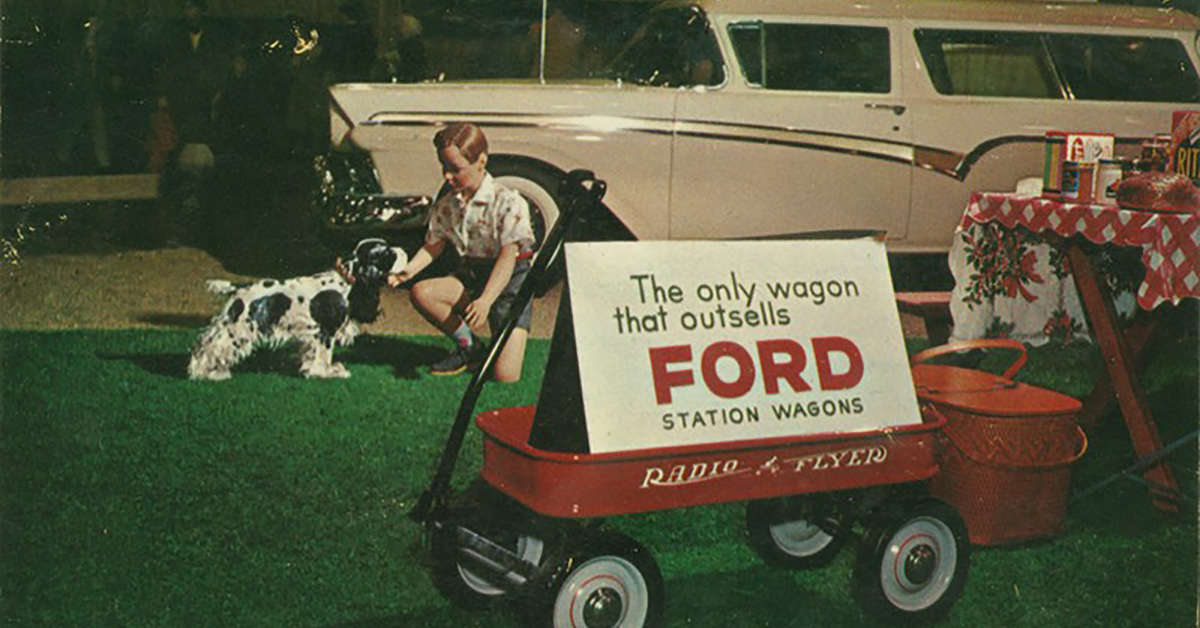While the little red wagon is considered part of American History it did not start in America. Antonio Pasin at the age of 16 traveled from Venice Italy to the United States. Pasin was known as a wood craftsman who dreamed of owning his own business. While Pasin was not from America his invention became very American.
It would take a bit of time and even more work before Pasini would save enough money to purchase enough wood to make the first wooden wagons. Pasini continued to work during day at various jobs and at night he would work on the wagons. His dream would start to be visualized in 1923 when he hired a few employees and started the Liberty Coaster Wagon Company. Did you know that his first company was named after the Lady Liberty??
The demand for the wagons helped build the company into a manufacturing company when toys such as scooters and tricycles were built and sold. The demand for the popular wagons would lead them to be made in stamped steel in 1927. The name of the company was inspired by the invention of the radio and Charles Lindbergh's solo non stop flight across the Atlantic. The new name was Radio Flyer
Using the assembly line methods pioneered by Henry Ford, Pasin’s company grew exponentially and in 1930 he renamed his business the Radio Steel & Manufacturing Company. The shift from wood to steel allowed him to retain his old-world standards of quality (his steel-bodied wagons were virtually indestructible), while increasing production and lowering the price. Pasin’s vision allowed him to make an affordable wagon, as his slogan read, “For every boy. For every girl.” He was given the nickname “Little Ford” by the steel companies who sold him the raw materials necessary to transform 25 pounds of metal into a toy that transported many of us through childhood. Just 16 years after setting foot in America, Pasin’s vision and hard work had transformed him from a penniless, immigrant teen to the world’s largest producer of coaster wagons.
Pasin's workshop was located in Chicago Illinois . The 1933 World's Fair took place in Chicago and helped make the little red wagons popular. The wagons seemed to provide a bit of fun and rid the minds of many if just for a moment of the troubles that we going on. Perhaps it was the fun that made the wagon so popular but it must of been so much more as the design of the wagon has stayed the same throughout time.
The small red wagon normally has either 9, 12 or 16 bolts. Four of these bolts are found in the back axle, the front varies among the different steering designs. Wagon wheels vary as well from air, hard rubber or hard plastic tires. The body of the wagon can be made of plastic, wood, aluminum, poly or steel. One of the most important parts the handle comes in a variety of shapes from a T, D, or a circle handhold at end. However, radio flyer was not the only toy wagon company.
In 1923 the Liberty Coaster Company started producing wooden bodied wagons. This encouraged Pasin to do more so he then replaced the Radio flyer wagon wooden body with stamped steel. The nickname "Little Ford" was offered to Pasini Since that time a number of styles have been created via Radio flyer that were inspired by popular automobiles of the time Thus helping the little red, blue or yellow wagon to remain a popular toy.
In 1999 at The Strong in Rochester New York the Radio Flyer Wagon was inducted into the National Toy Hall of Fame. In 2003 Antonio Pasin was inducted into the Toy Industry Hall of Fame. This is not the only reason to trust radio flyer toys as they are favored by many. The toys are safe and ever evolving in order to meet safety standards. For over 100 years Radio Flyer has been held to the highest standards.
retweet post here
shared on facebook here
shared at these blog hops, parties, and linkups
shared at these facebook group linkups
retweet the words---- 11/30 rt


Great info I did not know any of that. I have to share this on my page.
ReplyDelete